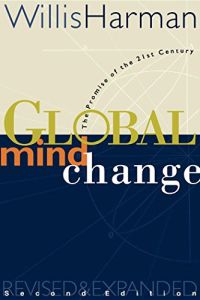Join getAbstract to access the summary!

Join getAbstract to access the summary!
Willis Harman
Global Mind Change
The Promise of the 21st Century
Berrett-Koehler, 1998
What's inside?
The paradigm shift is leaving the station. Get on now, or get left behind.
Recommendation
From Galileo to the Wright Brothers, mankind’s most significant scientific discoveries have come from thinkers who challenged the assumptions of the day, often earning the scorn – or worse – of their contemporaries. Esteemed futurist Willis Harman reminds us of this fact early and often in the second edition of Global Mind Change, which is enhanced by a foreword by acclaimed author Hazel Henderson, but otherwise maintains the original’s insights and flaws. In terms of insight, Harman speaks eloquently about the changes in human perspective that accompanied – and, he says, ultimately caused – such radical shifts as the fall of the Roman Empire and the demise of slavery in the United States. He extends this analysis to modern scientific thought, which he identifies as a societal foundation currently in the first stages of a paradigm shift in which many concepts now viewed as “New Age” will gain acceptance. getAbstract recommends this book to any armchair futurist but urges all readers to bear in mind one caveat: For every free thinker who upended science with brilliant insight, there have been untold thousands of quacks, madmen and charlatans.
Summary
About the Author
Willis Harman (1918-1997) remains widely recognized as a practical visionary. He was the president of the Institute of Noetic Sciences until his death, and for 16 years was senior social scientist at SRI International, a global futuristic think-tank. He was also emeritus professor of Engineering-Economic Systems at Stanford University, and a member of the Board of Regents of the University of California. His books include An Incomplete Guide to the Future, Changing Images of Man, Higher Creativity, Paths to Peace, New Metaphysical Foundations of Science and Biology Revisited.

















Comment on this summary